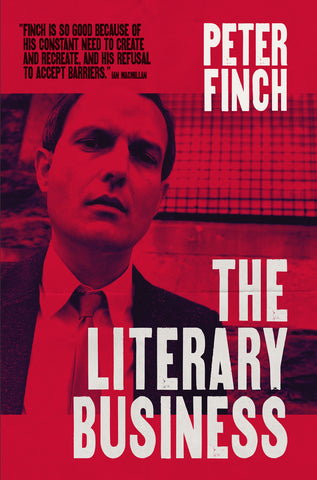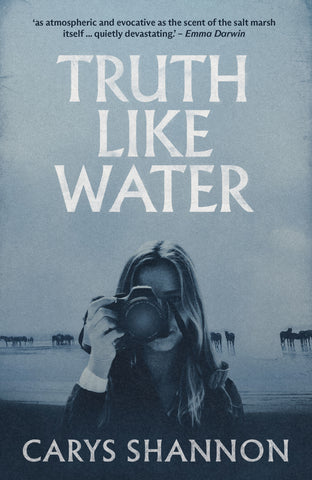To celebrate the lead up to Christmas, we at Parthian thought we’d publish a series of author interviews with the writers who were shortlisted for The 2021 Rhys Davies Short Story Award, continuing from where we left off with Naomi Paulus. Today we are kicking this series off with Elizabeth Pratt, who shared her experience writing the short story, ‘James, In During’.

Elizabeth Pratt, who also writes under Elizabeth Ardith Aylward, is an enthusiastic short story and flash fiction author. Having previously won the HE Bates Short Story Competition in 2018, the Frome Festival Short Story Competition in 2020, and having placed in several other competitions, Elizabeth is well-known for her short story writing. She has taken her interest in writing further and just finished her first novel, Past Dominion.
In Elizabeth’s shortlisted entry, she retells one of the contemporary concerns of loss as she recreates the atmosphere of life in lockdown. There is a strong sense of time jumping as James, the central character, lives through the prolonged period we were all confined in and left to our own devices. ‘James, in During’ is a relatable tale filled with humour, but also grief and frustration.
1. I love the Before, During and After dynamic you used to represent how everyone felt, and still feels, towards the lockdown experience. How did you develop that idea?
Thank you! I started the story during the first lockdown, just a few weeks after the announcement that we couldn’t do much more than go out for basic necessities. I kept hearing people say, “when this is over,” and “after this whole mess,” and I thought about what that meant, holding on to the idea of an ending, even though we had no idea what we were experiencing. The situation was long, but people held out the hope that we would be able to draw a line under it – to move on.
I thought about the vulnerability of not being able to do that. To lose the concept of time in a way that I think we all had - to have no real plans, no deadlines. Time moving all at once very quickly and incredibly slowly. It’s something I still experience now, the way that time speeds past because we’re forming no real memories. Just the same routine, day in and out, and how that messes with a person’s sense of self, too. For James, the story is waymarked with only a few solid events, and he starts to lose perspective. It’s as if he needs an anchor in time so he can re-join the stream, and I wanted to explore that a little.
2. How much of yourself and your experience in lockdown can be seen through the main character, James?
Admittedly, a lot of what James goes through was taken directly from my own experiences, especially being in two minds about lockdown and the social distancing measures – none of us wanted this, the suffering and loss. It’s easy to feel powerless to stop it. That could have been overwhelming and sometimes was, but there was also an unexpected joy to be found – bird song, cleaner air, the quiet of the days. You can be lonely but also appreciate aloneness. In this new life, nice things became wonderful, small things became huge. Everything felt exaggerated for better or worse, and we were forced to slow right down and reassess the situation. It was – and still is – a dramatic change of perspective.
3. This story has a strong balance of humour and loss - How hard did you find it to capture those emotions in a short story?
I wrote the story with a desire to be honest about what I was feeling, and to give those feelings to poor James. His moment of dread about being ill is an example- I once panicked about feeling a weird lump on my neck, only to discover it was a wayward raisin. He’s like me in trying to stay optimistic while also assuming the worst. It’s not the best blend of traits and can lead to a lot of anxiety, but it’s also just plain funny. Balancing humour and sadness isn’t easy until you acknowledge that life is absurd. It can be hilarious and tragic, sometimes in the same moment, and that’s the complexity of things that I love so much. I think I managed to get across both sides of things by writing as realistic a story as I could, and letting the emotions reveal themselves.
4. How is Past Dominion progressing? What inspired you to try writing longer prose?
I have just finished the first draft of my novel and given it to my husband - he’s my first port of call because he’s an avid, experienced reader and gives honest feedback – and then I’ll go through a rewrite and start looking for an editor. It’s an exciting time; I know I have a lot more work but I’m recharged and ready to prepare the book for a release into the wild. I’ve been writing short stories and flash fiction for a long time, and always wanted to move into long work just to see if I could do it. Well, it turns out that I can do it! It’s been so much more work than I imagined, and yet I’ve thoroughly enjoyed it. There’s something about the longer form, being able to be more leisurely and in-depth with the world-building, to have more characters and to have them interact, influence, and change each other and the story. There’s nothing like it – I’ve already started my second book. I think it’s fair to say I’m hooked.
Thank you so much for taking part Elizabeth! I don’t know about all of you, but we are excited to see what Elizabeth has up her sleeve in the future!



